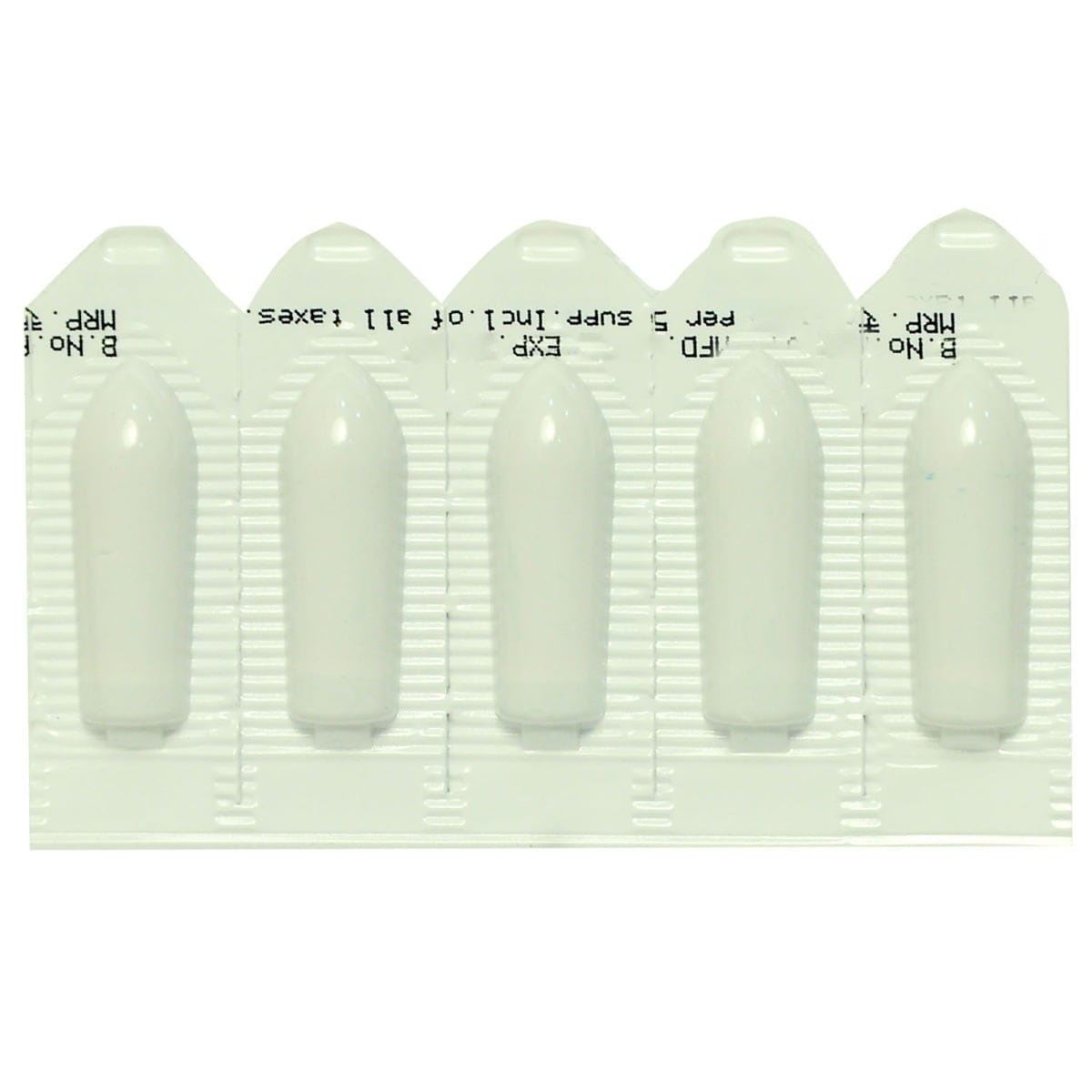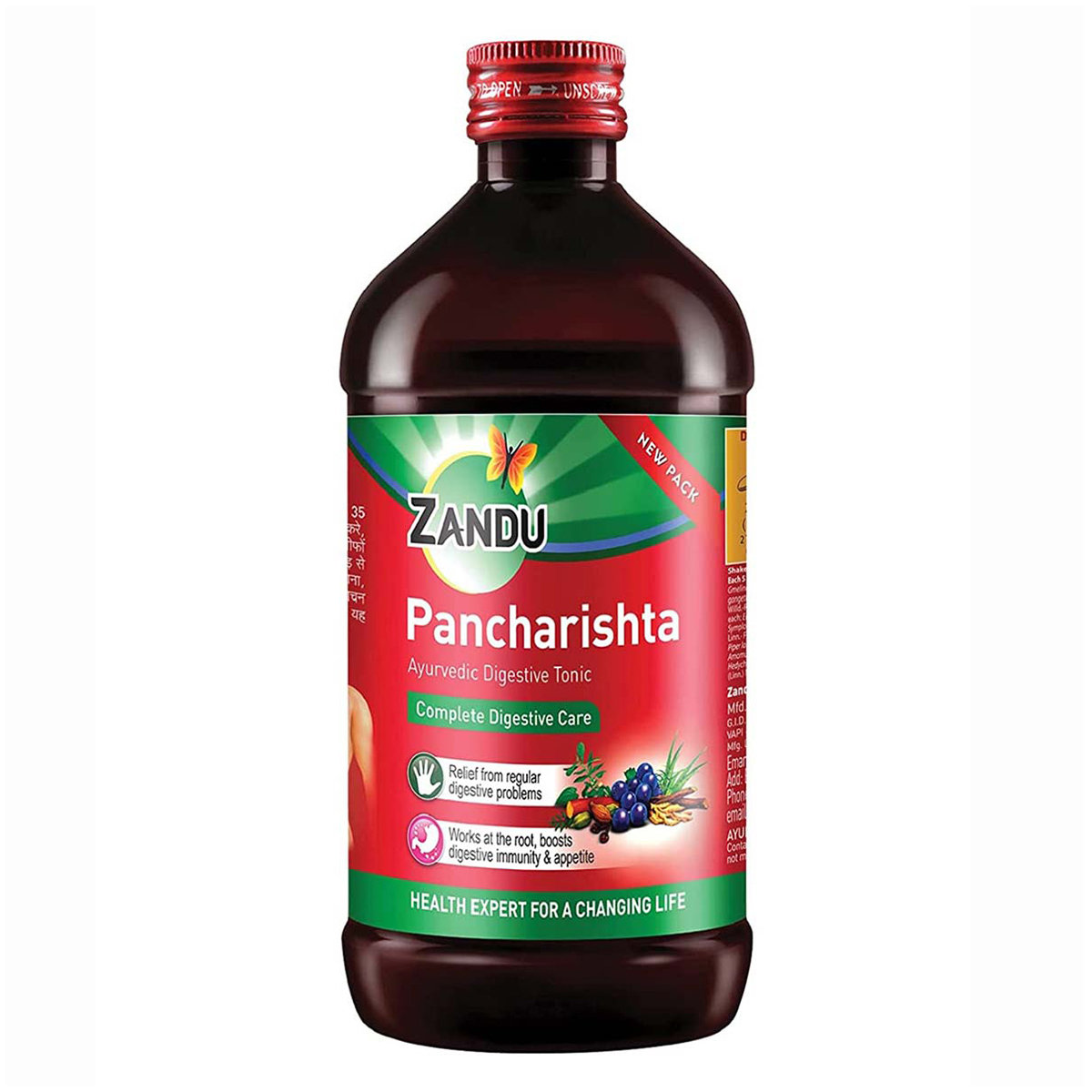Mesacol Suppository 5's
Selected Pack Size:5
5 ₹99
(₹19.8 per unit)
In Stock
7 ₹117
(₹16.71 per unit)
In Stock
MRP ₹110
(Inclusive of all Taxes)
₹16.5 Cashback (15%)
Provide Delivery Location

secured payment

india's most trusted pharmacy

genuine products
Composition :
Manufacturer/Marketer :
Consume Type :
Expires on or after :
Return Policy :
About Mesacol Suppository
Mesacol Suppository belongs to a class of anti-inflammatory drugs used to treat ulcerative colitis and ulcerative proctitis. Ulcerative colitis is a chronic inflammatory bowel disease that causes inflammation of the large intestine lining (colon). It produces ulcers on the colon's lining, which may cause bleeding and discharge of pus and mucus. Ulcerative proctitis is a condition in which ulcerative colitis solely affects the rear channel (rectum).
Mesacol Suppository contains Mesalamine, which works by preventing the synthesis of chemical messengers such as prostaglandins in the intestines that produce inflammation (swelling). This lowers ulceration, bleeding, and stomach pain while preventing future illness flare-ups.
Use Mesacol Suppository as directed by your physician. Sometimes, you may experience diarrhoea, stomach pain, headache or nausea. Most of these side effects of Mesacol Suppository do not require medical attention and gradually resolve over time. However, if the side effects persist or worsen, please consult your doctor.
Before taking the Mesacol Suppository, let your doctor know about all your medical conditions, sensitivities, and all medications you are using. And also, inform your doctor if you have severe kidney or liver failure or blood abnormalities like porphyria. Mesacol Suppository should not be used in pregnant and breastfeeding mothers unless necessary. So, inform your doctor if you are pregnant or breastfeeding. Your doctor will weigh the benefits and potential risks before prescribing Mesacol Suppository.
Uses of Mesacol Suppository

Have a query?
Directions for Use
Key Benefits
Mesacol Suppository contains Mesalamine, an anti-inflammatory drug used to treat ulcerative colitis and ulcerative proctitis. It can also help treat other inflammatory bowel disease types, such as Crohn’s disease. It works by inhibiting the production of certain chemical substances, such as prostaglandins, that cause pain and swelling. Thereby helping reduce inflammation (redness and swelling) in the intestines and providing relief from symptoms such as stomach pain or bleeding. Also, Mesacol Suppository may prevent further episodes of ulcerative colitis. It is especially useful when ulcerative colitis symptoms affect the rectum.
Storage
- Eating and drinking slowly can help swallow less air, which reduces burps.
- Avoid consuming foods like gum and hard candy and drinking carbonated drinks as they release carbon dioxide gas in your body.
- Prevent smoking as it can impact your whole body.
- Seek medical help to treat gastric problems and heart burn that may lead to frequent burps.
- Check your dentures because if they are loosely fit, excess air can be swallowed that causes burbs more frequently.
- If you have bowel inflammation, eat smaller quantities and more frequent meals.
- Eat slowly and chew your food thoroughly to help digestion.
- Eat fiber-rich foods such as fruits, whole grains, and vegetables to promote regular bowel movements.
- Avoid gas-producing foods like cabbage, beans, broccoli and carbonated drinks.
- Drink lots of water throughout the day to prevent dehydration and aid digestion.
- Do regular exercise to enhance digestion and reduce bloating.
- Hydrate your body: Drink enough water to prevent dehydration and headaches.
- Calm Your Mind: Deep breathing and meditation can help you relax and relieve stress.
- Rest and Recharge: Sleep for 7-8 hours to reduce headache triggers.
- Take rest: lie down in a quiet, dark environment.
- Cold or warm compresses can help reduce tension.
- Stay Upright: Maintain good posture to keep symptoms from getting worse.
- To treat headaches naturally, try acupuncture or massage therapy.
- Over-the-counter pain relievers include acetaminophen and ibuprofen.
- Prescription Assistance: Speak with your doctor about more substantial drug alternatives.
- Severe Headaches: Seek emergency medical assistance for sudden, severe headaches.
- Frequent Headaches: If you get reoccurring headaches, consult your doctor.
- Headaches with Symptoms: Seek medical attention if your headaches include fever, disorientation, or weakness.
- Apply a hot/cold pack to the affected area.
- Doing gentle exercises can help cope with pain by stretching muscles.
- Get enough sleep. It helps enhance mood and lower pain sensitivity.
- Avoid alcohol, smoking and tobacco as they can increase pain.
- Follow a well-balanced meal.
- Meditation and massages may also help with pain.
- Inform your doctor about the common cold symptoms you're experiencing due to medication.
- Your doctor may adjust your treatment plan, which could include changing your medication, adding new medications, or offering advice on managing your symptoms.
- Practice good hygiene, including frequent handwashing, avoiding close contact with others, and avoiding sharing utensils or personal items.
- Drink plenty of fluids, such as warm water or soup, to help thin out mucus.
- Get plenty of rest and engage in stress-reducing activities to help your body recover. If your symptoms don't subside or worsen, consult your doctor for further guidance.
- Inform your doctor about dizziness symptoms. They may adjust your medication regimen or prescribe additional medications to manage symptoms.
- Follow your doctor's instructions for taking medication, and take it at the same time every day to minimize dizziness.
- When standing up, do so slowly and carefully to avoid sudden dizziness.
- Avoid making sudden movements, such as turning or bending quickly, which can exacerbate dizziness.
- Drink plenty of water throughout the day to stay hydrated and help alleviate dizziness symptoms.
- If you're feeling dizzy, sit or lie down and rest until the dizziness passes.
- Track when dizziness occurs and any factors that may trigger it, and share this information with your doctor to help manage symptoms.
- Report the itching to your doctor immediately; they may need to change your medication or dosage.
- Use a cool, damp cloth on the itchy area to help soothe and calm the skin, reducing itching and inflammation.
- Keep your skin hydrated and healthy with gentle, fragrance-free moisturizers.
- Try not to scratch, as this can worsen the itching and irritate your skin.
- If your doctor prescribes, you can take oral medications or apply topical creams or ointments to help relieve itching.
- Track your itching symptoms and follow your doctor's guidance to adjust your treatment plan if needed. If the itching persists, consult your doctor for further advice.
Drug Warnings
Before taking the Mesacol Suppository, let your doctor know about all your medical conditions, sensitivities, and all medications you are using. Do not use Mesacol Suppository if you are pregnant, planning to become pregnant, or breastfeeding without first consulting the doctor. Mesacol Suppository is recommended not to be used in populations with severe renal or hepatic impairment, so inform your doctor if you have severe renal or hepatic impairment. Use Mesacol Suppository in dose and duration as advised by a doctor only. Do not swallow Mesacol Suppository. In case of accidental swallowing, drink plenty of water and consult a doctor immediately.
Drug-Drug Interactions
Drug-Drug Interactions
Login/Sign Up
Co-administration of Mesacol Suppository with Cidofovir can increase the risk of kidney problems.
How to manage the interaction:
Taking Mesacol Suppository with Cidofovir is generally avoided as it can possibly result in an interaction, it can be taken if a doctor has advised it. However, if you experience increased or decreased urination, sudden weight gain or loss, shortness of breath, consult a doctor. Do not discontinue any medications without consulting a doctor.
Co-administration of Iodamide with Mesacol Suppository may increase the risk of kidney problems.
How to manage the interaction:
Although, there is a possibility of interaction between Mesalamine with Iodamine they can be taken together if a doctor has prescribed them. Consult a doctor immediately if you experience any symptoms such as swelling in feet and ankles, itchy skin, shortness of breath, urinating either too much or too little. Do not discontinue any medication without consulting a doctor.
Co-administration of Tenofovir alafenamide with Mesacol Suppository may increase the risk of kidney problems.
How to manage the interaction:
There is a possibility of interaction between Mesacol Suppository with Tenofovir alafenamide, but they can be taken together if a doctor has prescribed them. Consult a doctor immediately if you experience increased or decreased urination, swelling, shortness of breath, bone pain, cramping in the muscles. Do not discontinue the medication without consulting a doctor.
Co-administration of Metrizamide with Mesacol Suppository may increase the risk of kidney problems.
How to manage the interaction:
Although, there is a possibility of interaction between Mesacol Suppository with Metrizamide they can be taken together if a doctor has prescribed them. Consult a doctor immediately if you experience any symptoms such as swelling in feet and ankles, dry, itchy skin, urinating either too much or too little. Do not discontinue any medication without consulting a doctor.
Co-administration of Nizatidine with Mesacol Suppository can decrease the level or effect of Mesalamine by increasing gastric pH.
How to manage the interaction:
Although there may be a possible interaction between Mesacol Suppository with Nizatidine, they can be taken together if a doctor has prescribed them. Do not discontinue any medications without consulting a doctor.
Co-administration of Ranitidine with Mesacol Suppository can decrease the levels of Mesacol Suppository, which may be less effective in treating a condition.
How to manage the interaction:
There may be a possible interaction between Mesacol Suppository with Ranitidine, but they can be taken together if a doctor has prescribed them. Do not discontinue any medications without consulting a doctor.
Co-administration of Iomeprol with Mesacol Suppository may increase the risk of kidney problems.
How to manage the interaction:
Although, there is a possibility of interaction between Mesacol Suppository and Iomeprol they can be taken together if your doctor has prescribed them. Consult a doctor immediately if you experience any symptoms such as swelling in feet and ankles, urinating either too much or too little. Do not discontinue any medication without consulting a doctor.
Co-administration of Deferasirox with Mesacol Suppository may increase the risk of kidney problems.
How to manage the interaction:
Although there is a possibility of interaction between Mesacol Suppository and Deferasirox but they can be taken together if a doctor has prescribed them. Consult a doctor immediately if you experience any symptoms such as increased or decreased urination, abrupt weight gain or loss, weakness, or dizziness. Do not discontinue the medication without consulting a doctor.
Co-administration of omeprazole with Mesacol Suppository can decrease the effects of Mesacol Suppository.
How to manage the interaction:
There could be a possible interaction between Mesacol Suppository and omeprazole, but they can be taken together if a doctor has prescribed them. Do not discontinue any medications without consulting a doctor.
Drug-Food Interactions
Drug-Food Interactions
Login/Sign Up
Diet & Lifestyle Advise
- Maintain a low-fat diet and eat foods rich in vitamin C, such as bell peppers, spinach, parsley and berries, which help heal faster.
- Opt for food and drinks high in Omega 3 fatty acids to relieve pain, swelling, and inflammation. Omega 3 rich acid-enriched foods include flaxseeds, walnut, soybean oil, salmon, and tuna if you prefer non-veg.
- Eat more fibre-rich foods such as fruits and vegetables.
- Eat smaller meals all day.
- Drink small amounts of water throughout the day.
- If you are intolerant to lactose, lower your intake of milk.
- Avoid foods high in sugar, fat, and processed foods, as these, may cause inflammation.
- Try to avoid alcohol as it can affect your stomach and intestine and also limits the absorption of the important nutrients required by your body.
Habit Forming
Therapeutic Class
Alcohol
Safe if prescribed
The interaction of alcohol with Mesacol Suppository is unknown. However, avoid consuming alcohol while on treatment with this medicine.
Pregnancy
Consult your doctor
Mesacol Suppository should not be used in pregnancy unless necessary. So, inform your doctor if you are pregnant or suspect pregnancy. Your doctor will weigh the benefits and potential risks before prescribing Mesacol Suppository.
Breast Feeding
Consult your doctor
Mesacol Suppository should not be used while breastfeeding unless necessary. So, inform your doctor if you are a nursing mother. Your doctor will weigh the benefits and potential risks before prescribing Mesacol Suppository.
Driving
Safe if prescribed
Mesacol Suppository usually does not affect your ability to drive or operate machinery.
Liver
Consult your doctor
Inform your doctor before receiving Mesacol Suppository if you have a history of liver diseases/conditions. It should be used cautiously in patients with mild to moderately impaired liver function. It is recommended not to be used in populations with severe liver impairment.
Kidney
Consult your doctor
Inform your doctor before receiving Mesacol Suppository if you have a history of kidney diseases/conditions. It should be used cautiously in patients with mild to moderately impaired kidney function. It is recommended not to be used in populations with severe kidney impairment.
Children
Safe if prescribed
Mesacol Suppository is intended for adults. Not recommended for children.
FAQs
Mesacol Suppository contains Mesalamine, which works by inhibiting the production of certain chemical substances, such as prostaglandins, that cause pain and swelling. Thus, it helps reduce inflammation (swelling) in the intestines and relieves stomach pain or bleeding symptoms.
Mesacol Suppository may cause diarrhoea as a common side effect. However, if the condition persists or worsens with fever, watery stools or consistent stomach pain, please consult a doctor. Also, drink plenty of water while using Mesacol Suppository to prevent dehydration.
If you miss a dosage of mesalamine, take it as soon as you remember unless your next dose is approaching. In this situation, skip the missed dose and resume your regular schedule. Do not combine two doses to make up for a missed dosage.
You are recommended not to take Mesacol Suppository with other medications without doctor's notice, especially immunosuppressant medications such as Azathioprine.
No, you are not recommended to stop using Mesacol Suppository suddenly as it may cause recurring symptoms. Therefore, use Mesacol Suppository for as long as your doctor has prescribed it, and if you experience any difficulty while using Mesacol Suppository, please consult your doctor.
Country of origin
Manufacturer/Marketer address
Disclaimer
Author Details
We provide you with authentic, trustworthy and relevant information




















